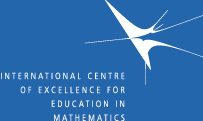|
Home Page
Public Lecture
International Students
Courses
Speakers
Schedule
Registration
Subsidies
AMSI Institutions
Accommodation
Organisers
Sponsors
Frequently Asked Questions
Tours
Contact Us
2006 SITE |
University of Queensland
4-22 July 2005
UQ St Lucia Campus, Brisbane, QLD
Please click the page reload button before viewing this page, as changes to
this website are being
made regularly
Speakers
| Robert Adler
Robert Adler was born, bred and educated (in Probability
and Statistics) in Australia. In 1980 he moved to the
Technion - Israel Institute of Technology, where he has
been ever since, modulo a number of visits to leading US
universities, including three years at the University of
North Carolina at Chapel Hill.
He is a Fellow of the Institute of Mathematical Statistics,
the author of three books on Gaussian processes and random
fields, and the co-editor of two others, one on stable processes
and one on physical oceanography. From 1996-1999 he served as
the Editor
of the Bernoulli Society's journal Stochastic Processes and
their Applications, and is currently serving as Editor of
the Annals of Applied Probability.
Robert is probably best known for his fundamental contributions
to the understanding of the random geometry generated by
smooth random fields, having developed theories of both
intrinsic mathematical interest and wide application. It is on these
topics and, especially, on recent work with Jonathan Taylor from
Stanford, that he will lecture at the Graduate School.
|
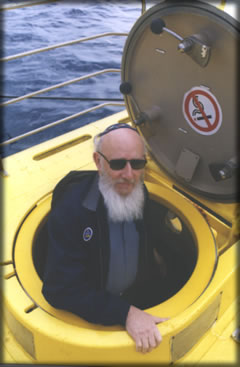 |
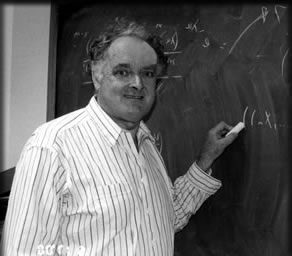
|
Warren Ewens
Professor Warren Ewens originally comes from the
land downunder. He was educated in mathematics and statistics at
the University of Melbourne and the Australian National University
and was Professor of Mathematics at La Trobe University before
leaving, in 1972, to become Professor of Biology at the University
of Pennsylvania in the US.
Warren is a Fellow of the Australian Academy of Science; Gold
Medalist, Australian Statistical Society; Fellow of the Royal
Society; and member of the Scientific Advisory Boards at the
Genomics Institutes in both Pennsylvania and Singapore. He won the
Lindback Teaching Award at the University of Pennsylvania in 2002;
the Weldon Prize at Oxford University in 2003; and the Browne
Distinguished Professor of Biology in 2003.
|
His research interests cover
all areas of mathematical, statistical and theoretical genetics and
include population genetics, in particular statistical and
mathematical aspects of the theory. His research areas include
mathematical methods in human genetics, specifically in methods for
mapping disease genes; evolutionary population genetics, including
multi-locus evolutionary theory and the stochastic theory; and
computational biology, bioinformatics and genomics, particularly the
analysis of DNA sequences.
|
| Jeroen Lamb
Dr Jeroen Lamb is a Reader and EPSRC Advanced Research Fellow
at the Department of Mathematics of Imperial College London. His
main research interest lies in the study of dynamical systems with
symmetry, with a focus on bifurcation theory, and applications
reaching from pattern formation to mechanics. One of his main
other research interests is the mathematics of aperiodic tilings.
Born and raised in the Netherlands, Dr
Lamb studied Theoretical Physics and received his PhD at the
University of Amsterdam in 1994. Before his arrival at Imperial
College London in 1999, he had research positions at the
University of Warwick and the University of Houston. |
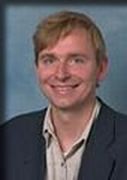 |
 |
Stephen
Bigelow
Dr Stephen Bigelow (alias Deuce) is currently Assistant
Professor in Mathematics at the University of California, Santa
Barbara, USA.
He was a student at Melbourne University from 1989 to 1995 where
he obtained a Bachelor of Science, a Masters in Mathematics, and
an acceptance letter from the Berkeley Graduate Program. He
finished his PhD in 2000. Stephen's thesis was about braid groups,
which really are groups of braids, as in hair or macramé. He
spent two years back at Melbourne University as a Research Fellow
in 2000-2002, and was then offered a tenure track job in Santa
Barbara, where he has been living ever since.
Stephen still spends most of his research hours thinking about
braids, in particular how to use them to study representations of
other groups by matrices. |
| Mark Kisin
Mark was born in Vilnius, Lithuania, and moved to Melbourne at the age of
five. He received his BSc (Hons) from Monash University in 1992. After studying with Nicholas Katz, he received his PhD from Princeton in 1998. From 1998
to 2001, he was an ARC Research Fellow at the University of Sydney, after which he spent three years in Muenster, Germany. He is now an Assistant Professor at the University of Chicago.
Mark's research interests have involved various aspects of arithmetic, geometry and number theory. At the moment he is interested in questions involving modular forms, Galois representations and p-adic Hodge theory. |
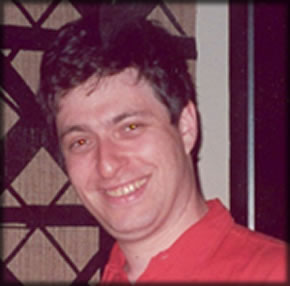 |
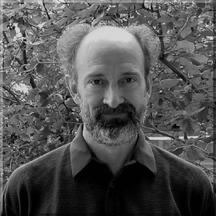 |
James
Meiss
James Meiss received a PhD in Physics from the University of California at Berkeley in 1980,
studying the nonlinear evolution of internal waves in the ocean. He
then obtained a postdoctoral fellowship that evolved into a research scientist position with the Institute for Fusion Studies at the University of Texas at Austin. Work on plasma physics included studies of drift waves, tearing mode instabilities and chaotic particle motion in magnetic fields, culminating in the textbook
Plasma Confinement co-authored with Richard
Hazeltine. |
| In 1989 he joined the newly formed Department of Applied Mathematics at the University of Colorado at Boulder. His primary interests have been the transition to chaos and studies of transport in Hamiltonian dynamical systems, notably developing the theory of transport through turnstiles in cantori for area-preserving mappings with MacKay and
Percival. Recent research includes models for mixing in three-dimensional incompressible fluids, studies of homoclinic bifurcations in volume preserving mappings, genericity of twistless bifurcations in symplectic maps, and properties of symbolic codes inherited from the anti-integrable limit. |
|
